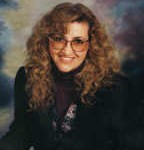 Dianne E. Butts has over 250 publications in more than fifty Christian print magazines and seventeen books. Her articles have been republished in Great Britain, Bulgaria, Poland, Canada, and Korea. She speaks to writers groups, teaches at Christian writers conferences, and offers her monthly e-zine to writers for free. For your free subscription use the sign-up box at www.DianneEButts.com. To follow the progress of her upcoming book, stay tuned to www.DeliverMeBook.blogspot.com. The following article is reprinted from her e-zine with her permission.
Dianne E. Butts has over 250 publications in more than fifty Christian print magazines and seventeen books. Her articles have been republished in Great Britain, Bulgaria, Poland, Canada, and Korea. She speaks to writers groups, teaches at Christian writers conferences, and offers her monthly e-zine to writers for free. For your free subscription use the sign-up box at www.DianneEButts.com. To follow the progress of her upcoming book, stay tuned to www.DeliverMeBook.blogspot.com. The following article is reprinted from her e-zine with her permission.
______________________________________________________________________________________________________________
I had a couple of interesting conversations with writers lately. One lady contacted me because she noticed the local writers group and she was thinking she might like to join. Though I encouraged her to come to the writing group, she seemed shy and uncertain. Finally she confessed what was really on her mind. She said she wasn’t sure it was right to call attention to herself through writing. She was concerned about becoming prideful about writing in a way that would be unbecoming for a Christian.
I had to be careful in my response, because I didn’t want to laugh out loud. That might have come off as rude.
I asked her what she meant about calling attention to herself. She looked confused. I asked her if she thought if she started writing that everyone would then know her and she would be famous. She kind of, sort of indicated yes. I asked her if she had read any magazine articles lately. She said yes. I asked her who wrote them. She said she didn’t know. I wondered if she’d read anything else lately. Articles online? Newspaper? Book? Would she have remembered any of these writers’ names? My bet is if she could have remembered any, it would have been the name of a book’s author. Continue reading →









